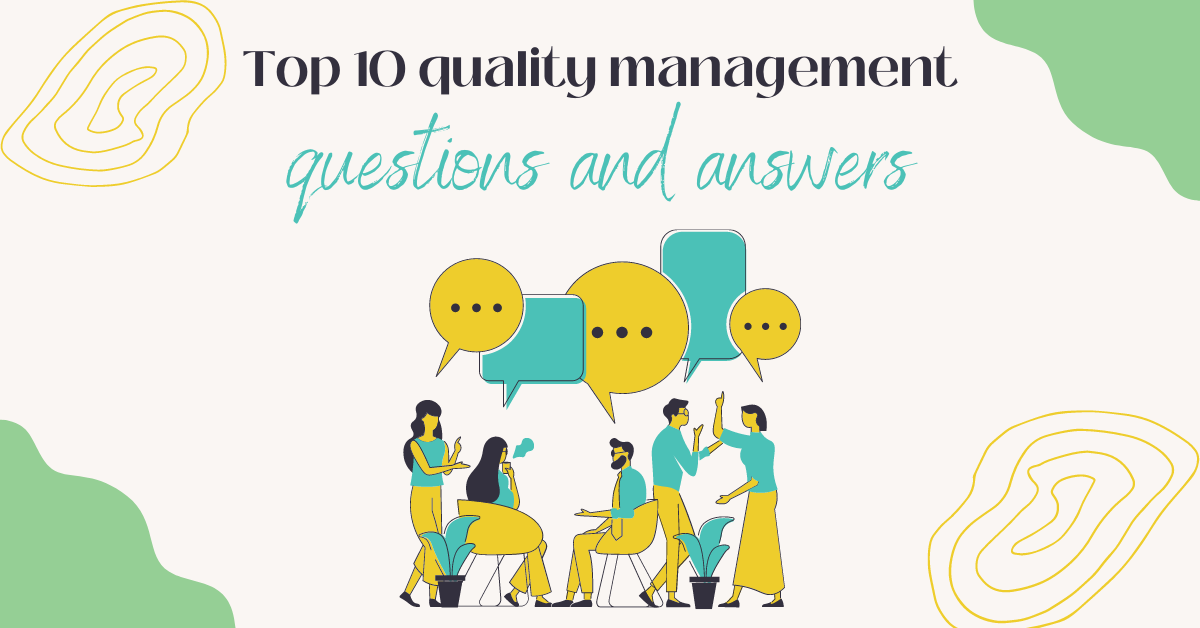Today our article topic is a little different. We have observed that many quality management students from various universities across the world visit our website. We try to provide knowledge and information through our quality management blog section which we believe is beneficial to everyone, be it quality management professionals or students. However, in this article, we have jotted down the top 10 quality management questions and answers that most quality management students come across and get puzzled by.
Want all your questions answered for Isolocity QMS? Talk to our product specialist!
Now you can watch this blog too!
1. A successful quality strategy features which of the following elements?
A. An organizational culture that fosters quality
B. An understanding of the principles of quality
C. Engaging employees in the necessary activities to implement quality
D. a and c
E. a,b, and c
The correct answer is “a,b, and c (E)”
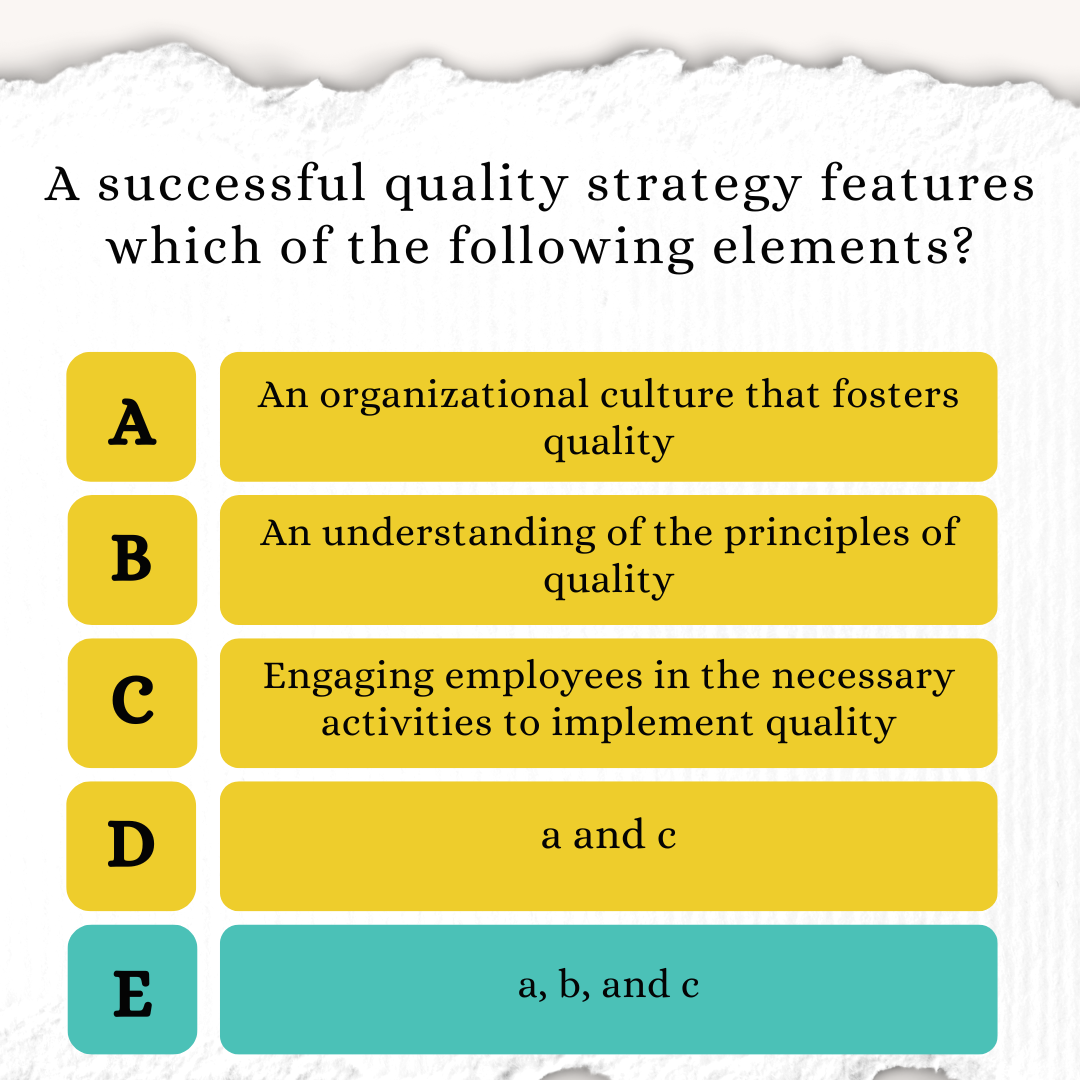
2. Which of the following is not an element of TQM?
A. Continuous improvement
B. Competitive benchmarking
C. Employee empowerment
D. Team approach
E. Quality management as a specialized function within the firm
The correct answer is “Quality management as a specialized function within the firm (E)”
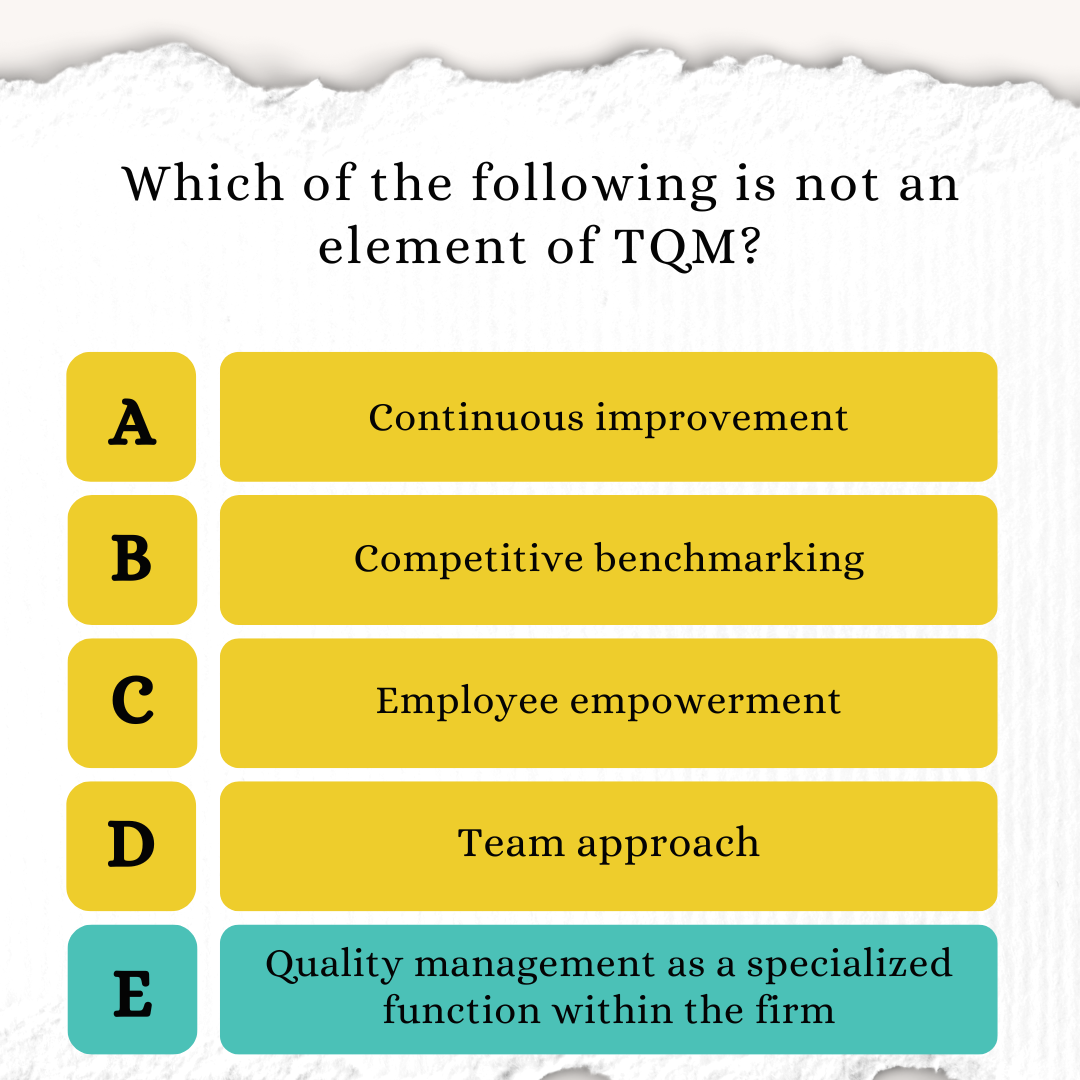
3. Which of the following is not a manager quality?
A. Maintains stability
B. Organizes
C. Analyzes
D. Rational
E. Personal power
The correct answer is “Personal power (E)”
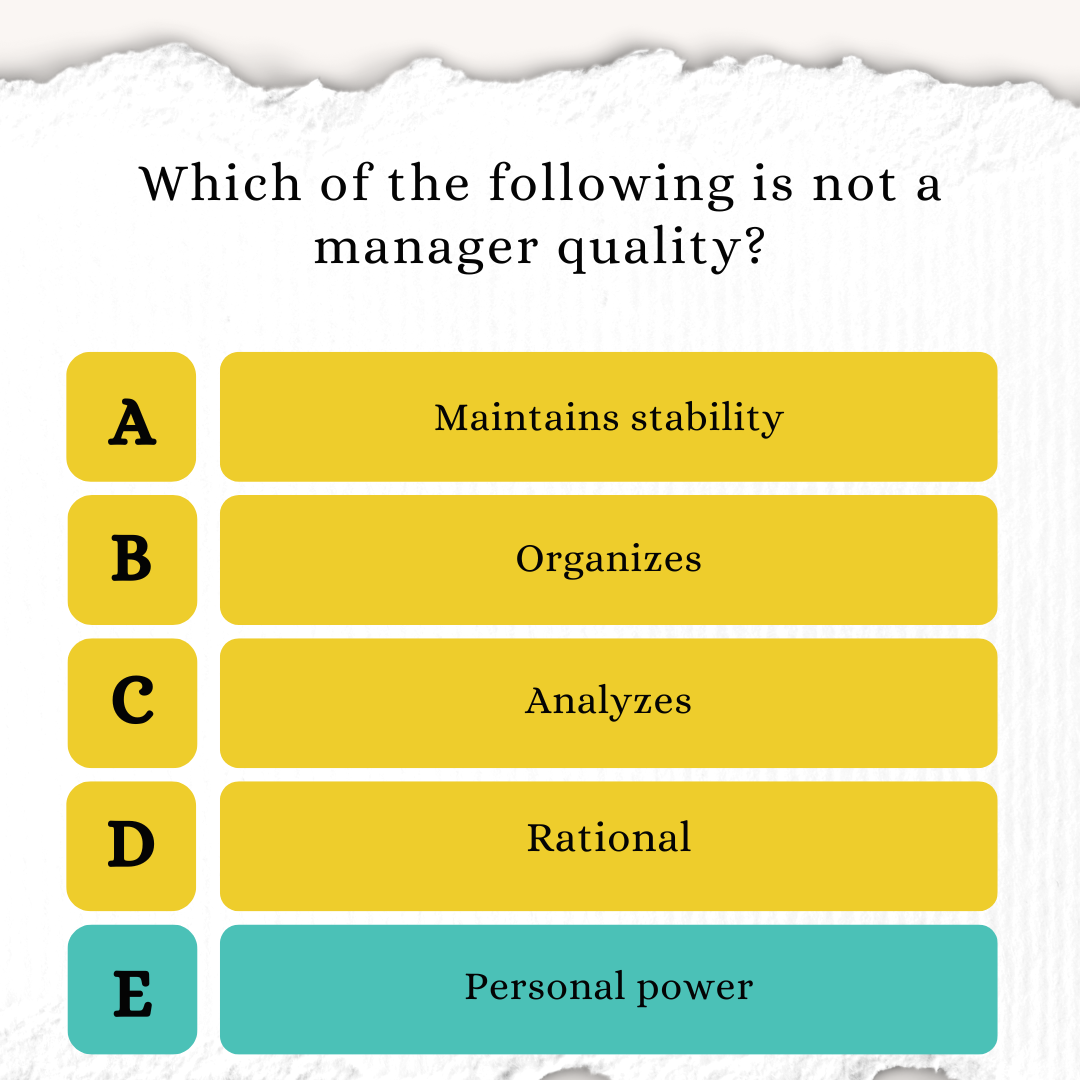
4. Who has primary responsibility for assuring product or service quality?
A. Contractor
B. Contracting officer
C. Requesting office
D. Government
E. Quality assurance representative
The correct answer is “Contracting officer (B)”
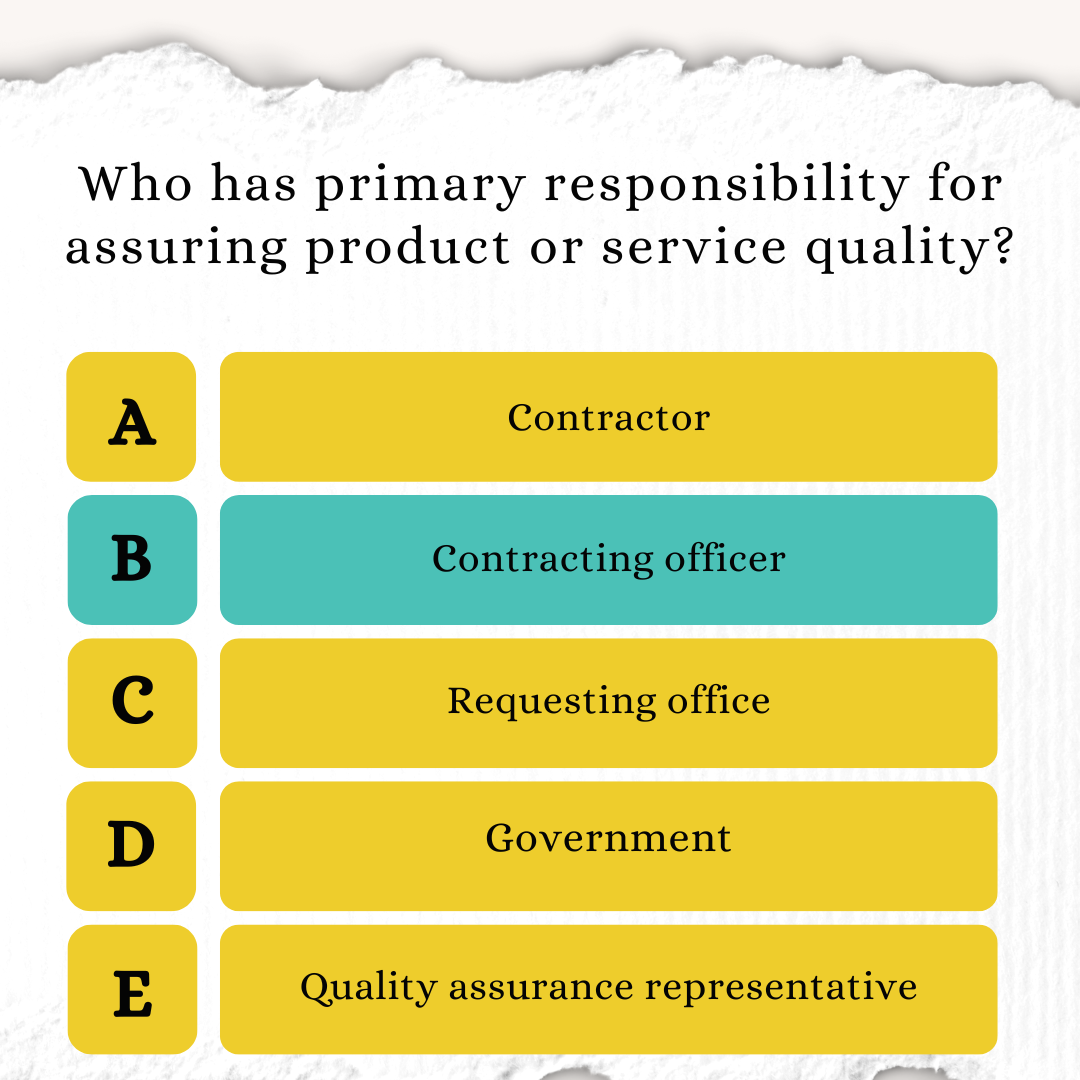
5. A distinguishing feature of the total quality management approach is
A. Attention to rewards
B. Development of problem solving skills
C. The improvement of processes
D. Training
The correct answer is “The improvement of processes (C)”
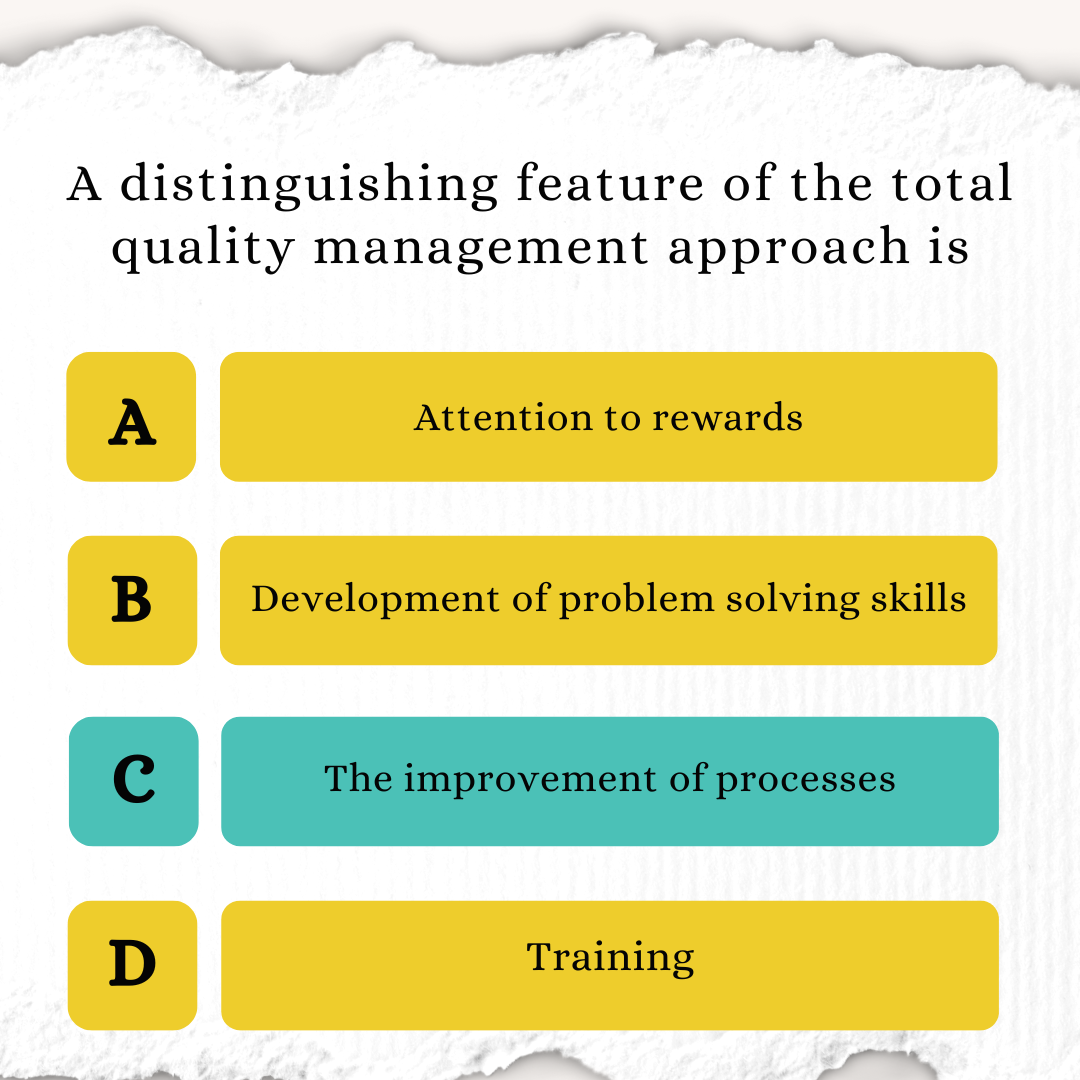
6. Which resource management task determines the type, quantity, receiving location, and users of resources?
A. Identify Requirements
B. Track and Report
C. Order and Acquire
D. Mobilize
The correct answer is “Identify Requirements (A)”
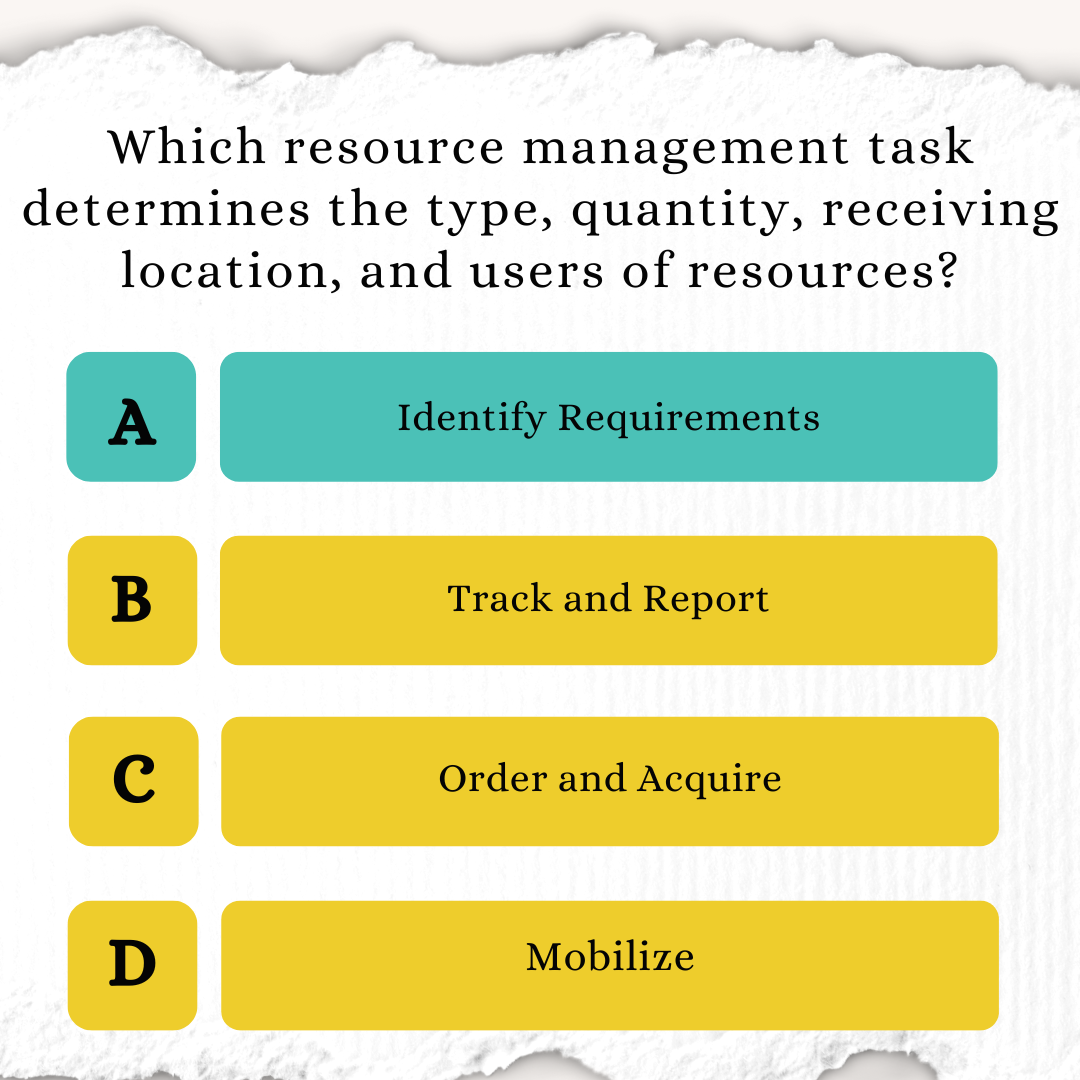
7. A _____ is a tool used in quality management.
A. Probability Metrics
B. Checklist
C. Critical Path Analysis
D. Request for Proposal
The correct answer is “Checklist (A)”
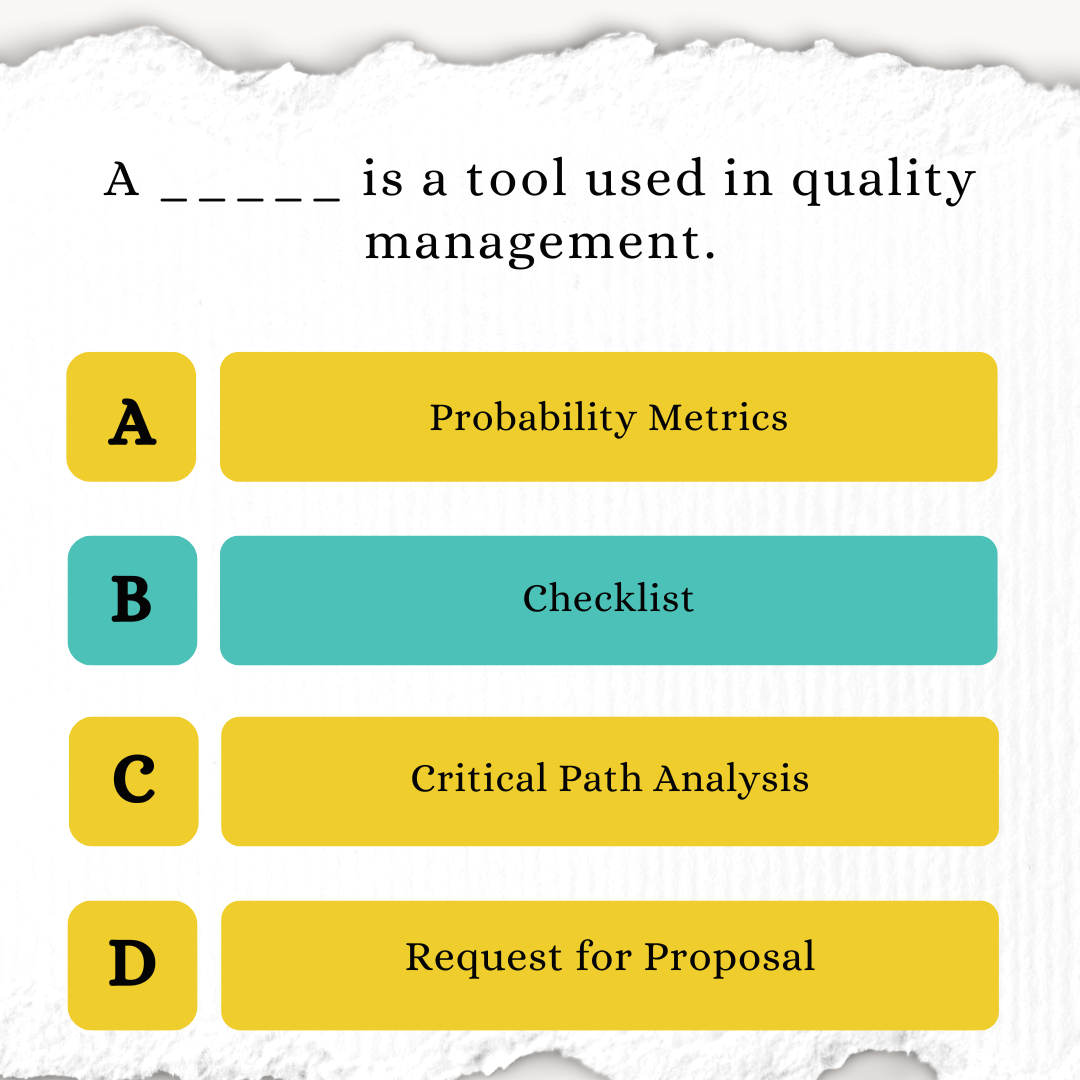
8. Which of the following best describes total quality management?
A. The process by which a company analyzes a competitor’s products to identify desirable improvements
B. The principle that quality belongs to each person who creates it while performing a job
C. The sum of all activities involved in getting high-quality products into the marketplace
D. The consistency of a product’s quality from unit to unit
The correct answer is “The sum of all activities involved in getting high-quality products into the marketplace (C)”
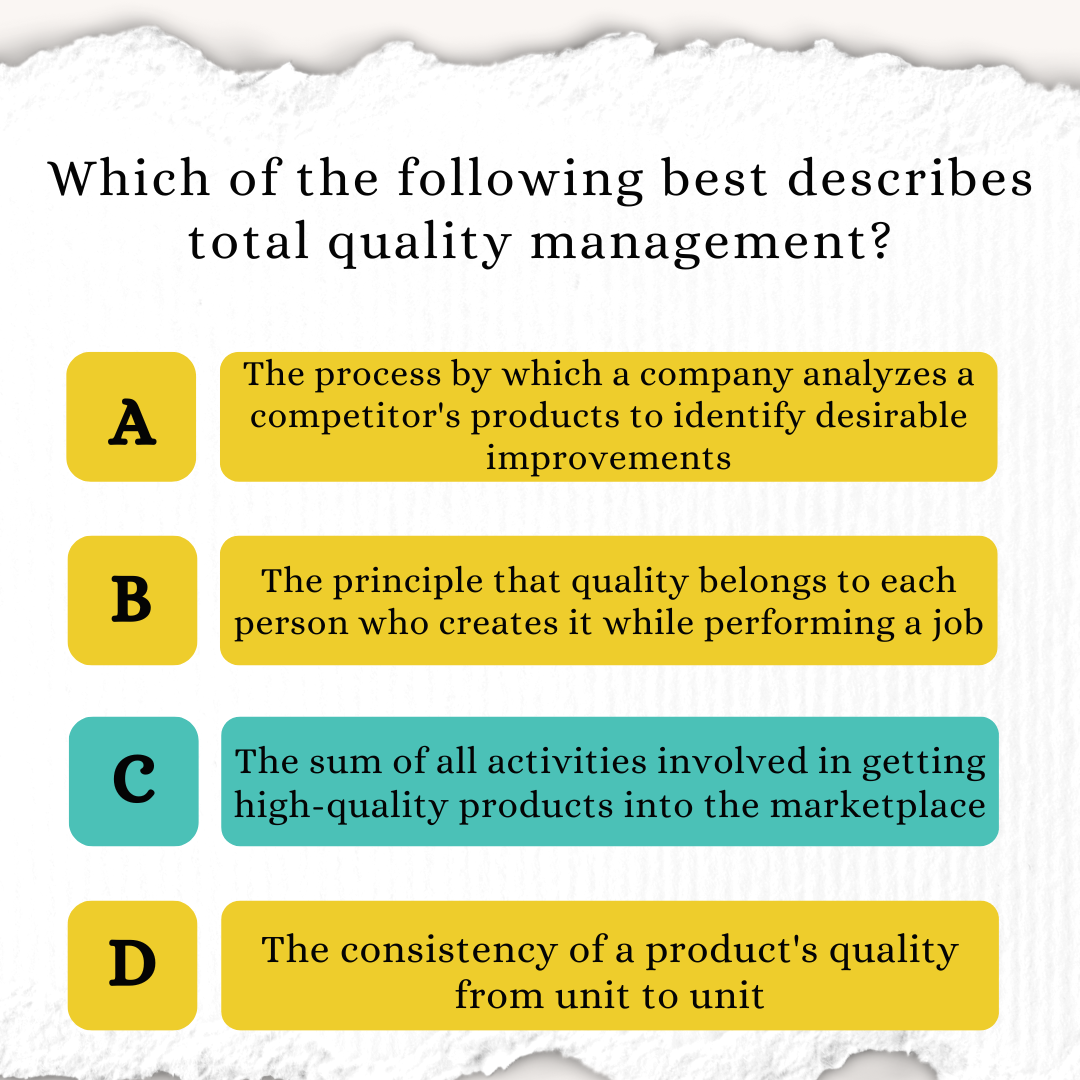
9. What quality assurance activity is a purchasing manager responsible for?
A. Inspecting the quality of goods received from a supplier
B. Ensuring that the product design process includes high-quality materials
C. Overseeing the daily operations of suppliers to ensure their compliance with quality standards
D. Responding to service calls from customers whose products have quality issues
The correct answer is “Inspecting the quality of goods received from a supplier (A)”
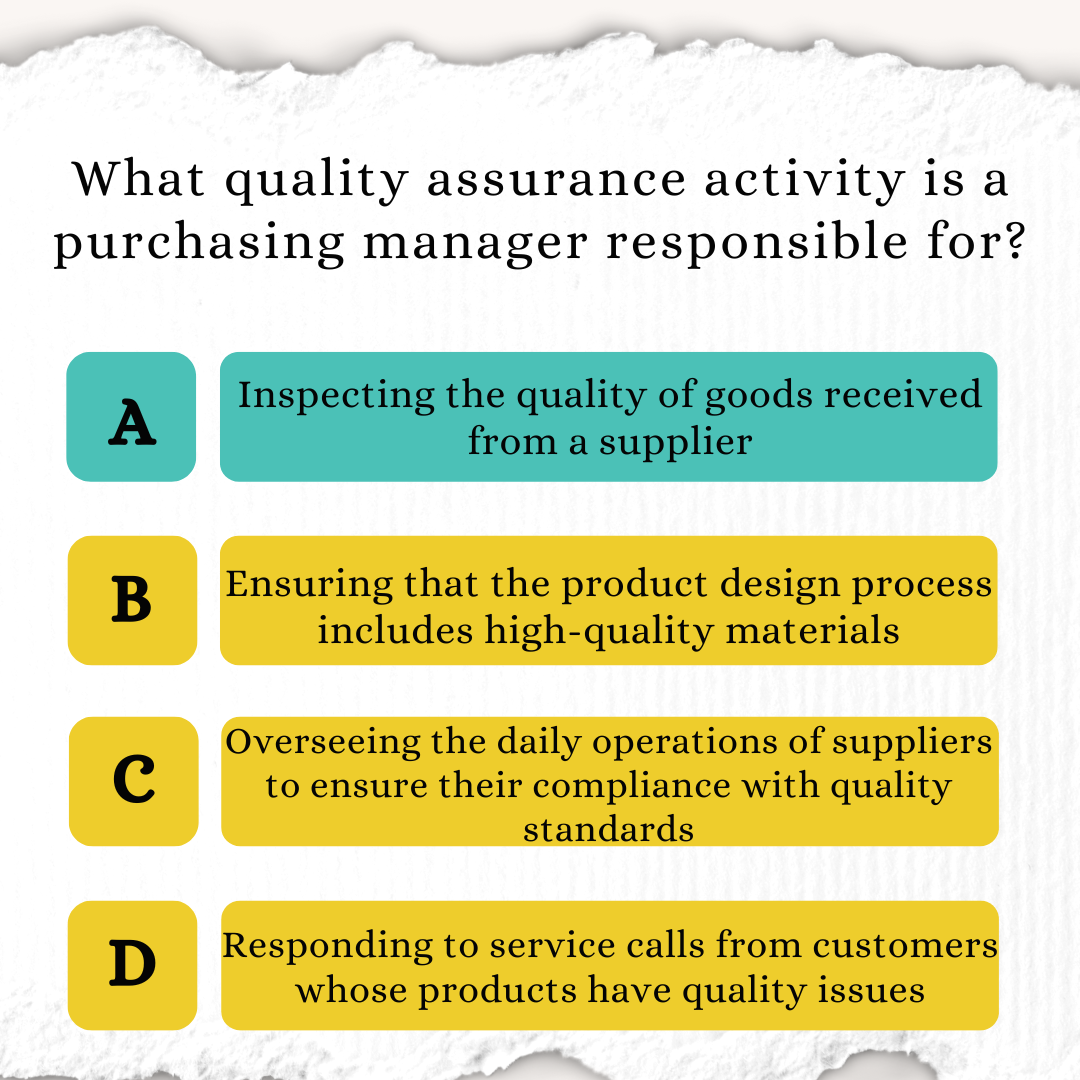
10. What are the cost types in modern quality management?
A. Costs of good quality – costs of bad quality
B. Planning costs – assurance costs – control costs
C. Planning costs – doing costs – checking costs – acting costs
D. Prevention costs – appraisal costs – failure costs
The correct answer is “Prevention costs – appraisal costs – failure costs (D)”
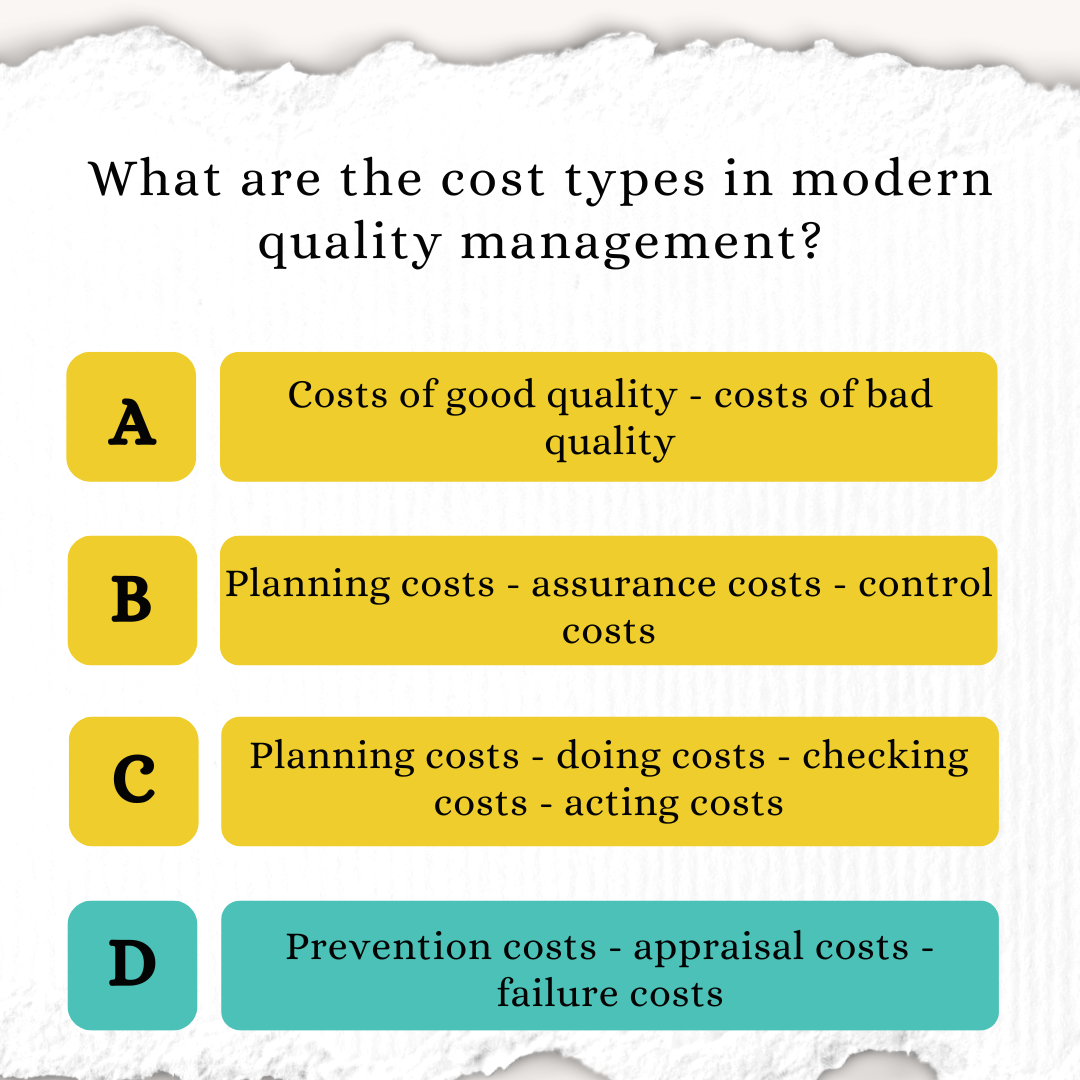
We hope all these questions and answers will help all quality management students. We also encourage all to subscribe to our newsletter. For any doubt or comment, feel free to reach out to us here.
